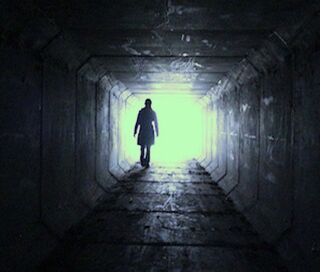Persuasion
Post-COVID Adjustments for Those Alone During the Pandemic
Will being mostly alone during the pandemic influence post-COVID experiences?
Posted March 24, 2021 Reviewed by Davia Sills
Where is the toothpaste? It was always in this aisle right next to the toothbrushes. Where is the “Dental Care” section anyway?
I don’t see a clerk. Do I have to walk back to the store entry to ask? All I wanted was to get some toothpaste. I didn’t think I would need a map! Aargh!

Our memory of sensory information serves to speed our efficiency of routines. Remembering relative locations in space, we can more quickly go directly where an object has always been found. The abnormality is when it isn’t there!
Our routine is disrupted. We can’t just “grab and go,” we have to “think and look.” It can be upsetting when we are on edge anyway. We have to adapt in the moment to an unknown change that occurred since the last time we were in that situation. Will that happen more often post-COVID?
“My desk is very cluttered with online purchases, receipts, and lists. I really want to get this mess cleared off,” I say to myself as I drop my keys absent-mindedly into a crevice in the sofa, not on the side table.
It may be ordinary to feel keys drop from one’s hand, but where they drop can be unusual because of an unexpected emotional distraction at that moment. A habit is a mini-series of steps memorized by repetition. For example, we can repeatedly drive a freeway route so well that we might take our correct off-ramp without remembering doing so. If there is a traffic accident right at our exit, however, we must interrupt the routine to choose another road.
Life during COVID can feel like a string of accidents at exit ramps that force repeated, interruptive rerouting. This might lead to bewilderment or forgetfulness. Will that happen more often post-COVID?
In the scenarios above, I focused on the sense of object location: toothpaste relocated by a storekeeper and keys misplaced by me. There is something about predictable object location that provides a sense of continuity and order. Some would call it being "grounded."
In these examples, I experienced disorientation because my expectation of an object being in a certain location was not met. What was once a habit, another’s or mine, suddenly wasn’t there to rely on. During the pandemic, the increased frequency of such events, especially because I have been alone so much, has made me feel I must be hyper-vigilant. That, in turn, contributes to an inner weariness that keeps me from enjoying even simple things. Will such feelings continue post-COVID?
I have likely been in a reoccurring daze mixed with hope during my isolation. Meanwhile, other people have been changing the outer world without my knowing. Sometimes I get surprised by a new version of a website, a change in the way a service is provided, or limitations on what is available to buy. I find it a challenge to address because I must find imaginative ways of interacting with or interpreting the changes.
I feel like I’m increasingly aware of loss: loss of routine patterns, loss of access to needs, loss of explanations, loss of security, loss of laughter, and more. I cannot imagine how difficult it must be for those who have literally lost jobs, income, shelter, and, worst of all, beloved companions in the wake of COVID.
Many small losses can add up to a large impact. Among the most difficult losses for me are changes in relationships. It saddens me when yet another friend is moving out of the area. It saddens me when I leave a message for someone I consider a friend, but I never get a response. Have they died of COVID? I tell myself that they, too, are adjusting their lives to a new set of circumstances, perhaps including the death of their loved ones.
Whatever the truth, part of me feels the slippage of my former relationships. I have learned my own aliveness is supported by connecting to others through verbal, visual, and physical communication. The loss of such communication is a loss of part of me and intensifies my isolation. I know there will be new friends in my future, but for now, the grief is for those in the past.
Now is a good time to become aware that the world we wake up to when COVID gets under control will not be the world we suddenly left in March 2020. That message has been repeated often lately in an effort to help us prepare for change. Only recently has it really puzzled me.
In one moment, it seems a new reality is coming that I fear I won’t be able to adapt to. In another moment, I long to be hugged again. In yet another moment, it seems the new reality will be filled with hope for a deeper awareness of shared values, broader awareness of life with less materialism, and a higher awareness of overcoming difficulties by sharing our innate ability to love each other and the Earth.
I sense fractures may be impacting my mental health, not necessarily for the worse, but for the better. As I go through this process, I’m questioning my views and choices that could transform me, not destroy me. I have let go of the assumption of the future being an easy path and am trying to accept it will be a creative challenge filled with potential for joy.
When I feel a negative emotion, it will be up to me to pull it into my own heart with compassion so it can be morphed into a positive one. Togetherness with others will ease the process. Kindness from and toward others are gifts that can help us all overcome what is past and begin a post-pandemic story in which non-survivors are never forgotten, no one else succumbs, and all of us thrive in good-hearted ways.
© Betty Luceigh, March 23, 2021.




